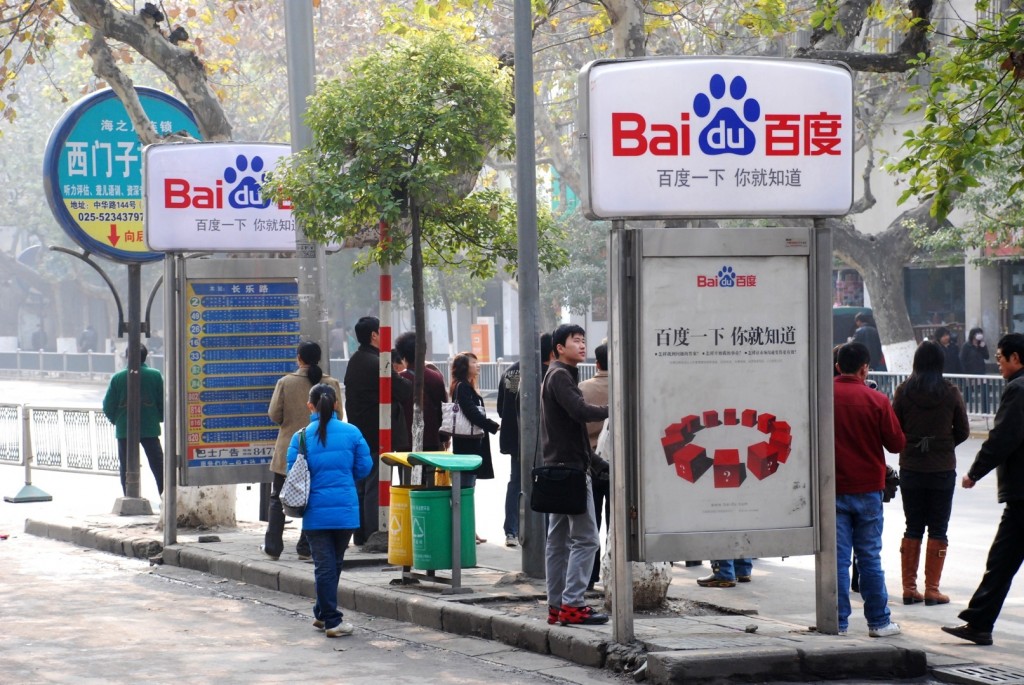 Baidu is the most popular search engine in China, with over 400 million users. When Western marketers think of entering the Chinese market, Baidu is often the first marketing channel they consider, especially for paid search marketing.
Baidu is the most popular search engine in China, with over 400 million users. When Western marketers think of entering the Chinese market, Baidu is often the first marketing channel they consider, especially for paid search marketing.
I’ve had the opportunity of working with many Western companies that are experienced with Google AdWords, but new to Baidu. I’ve prepared seven tips for doing well on Baidu based on the most common issues and questions I’ve come across.
1) Localization is Key
China is a huge market that is highly competitive, so Chinese consumers are accustomed to having companies do things their way. At the bare minimum, the website and ads should be in Chinese. However, that really is the bare bare minimum.
The process of localization is a lot more than translation of content. The business strategy and marketing campaign should be considered from the ground up. If you’re going to be entering the Chinese market, you should be prepared to adjust your business to China, even to the point of coming up with products tailored to the Chinese market.
When it comes to pay-per-click campaigns specifically, keyword research and competitor research should be done anew, rather than relying on research done for English-language readers.
2) Provide Real-time Support
If you’ve ever spent time poking around Chinese websites, you probably noticed that they love chat boxes! Chinese consumers expect to be able to speak to a human very soon, if not instantly. The most common methods of communication are chat box, QQ messenger, and phone.
Chinese Internet users use real-time chat to get information, but also just so they can reach out and make a connection with a human being. When adding real-time support to a campaign, we typically expect to see an increase in conversions of three to four times. In fact, for e-commerce type sites, I think real-time chat is a must.
Real-time chat functionality isn’t totally new to English-language marketers either. For example, it’s widely used on hosting websites.
3) You’re Probably a ‘David’, Your Competitors are ‘Goliaths’
In most cases, the foreign company entering China will be facing competitors that have a much bigger ad budget and are much more experienced with the Chinese market. I’ve come across this scenario many times, especially with small businesses.
To beat them, you can’t rely on brawn. So, let them have the top rankings for now. Be prepared to strike intelligently. Create a better product, better landing pages, a better website and/or better ads. Choose keywords and bids strategically. Continuously test and improve until you have high enough profitability to increase the budget and become one of the big competitors yourself.
4) Flaunt Your Foreignness
What do you think when you read “Made in China”? Do you think “cheap”? “Low quality”? Perhaps you even think “unsafe.” Well, Chinese people tend to think the same thing.
A foreign brand, and especially a Western brand, will be perceived as being higher quality in most cases. This perception can be used to your advantage. If your company is Italian for example, tell them! Make it part of your brand image, include it in your ad copy and website copy.
This point may seem confusing since I’ve already mentioned how you need to do things the Chinese way in points one and two above. To clarify, this is what I mean: Adapt your product and service to China, but present a foreign brand image.
5) The Baidu Account Setup Process is Not as Simple as AdWords
Unlike Google, Baidu does not setup ad accounts itself. Instead, it outsources this task to a network of resellers. Some of these resellers are clueless when it comes to working with non-Chinese clients. Reseller regulations and authority also varies.
Regardless of the reseller, Baidu always requires a scanned version of the business certificate of incorporation or other proof of business documentation. Plus, they require that the business name on the certificate of incorporation is used on the website to be advertised. They usually request other minor changes to the website, as well. However, advertisers can usually get away with making these edits to their website, then reverting them back after the account has been setup.
Advertisers do not need a .cn domain, or a Chinese government ICP license, or a Chinese phone number in most cases.
Baidu currently requires an initial deposit of 5,000 Chinese Yuan (About 800 USD) which will be used for account credit. Plus, there is a standard account setup fee of 1,200 Yuan, but there may be room for negotiation on that.
6) Search Marketing Agencies Are Different in China
If you hire a search marketing agency, make sure you know what you’re getting. There’s a breed of marketing agency in China that isn’t quite the same as their Western counterpart.
For one, the marketing agency may be a reseller itself, which means they’re working on commission from Baidu. They’re paid by the client to manage the account, but they’re also paid by Baidu, which provides motivation to increase expenditure.
Second, such agencies are focused on working with the Baidu platform only. That means they aren’t doing any analysis or work on the website. They may not even use any Web analytics at all. Some of them are really just ‘operators’ who make changes to the account based on feedback from the advertisers.
Finally, they may have different views when it comes to working with multiple competing businesses simultaneously. Guess what happens when a marketing agency is on Baidu commission, and they’re promoting you and two of your competitors? They definitely have a strong incentive to ramp up the expenditure to the maximum possible amount.
7) Plan Your Web Analytics Integration
AdWords integrates very well with Google Analytics; Baidu’s pay-per-click platform does not. If you are using Google Analytics, the Baidu ads will need to have Google custom URL parameters added in order to provide Google Analytics with useful data such as the keyword used.
Another option is to use Baidu’s analytics platform, which integrates very well with their ad platform. There are other advantages to using ‘Baidu Analytics’ as well such as reporting on the activities of individual users, and a nice heat map tool. However, there are major drawbacks: Baidu Analytics has major accuracy issues, is only available in Chinese, and doesn’t allow for highly customizable reports.
Image source: http://www.fotopedia.com/items/flickr-2199299812





![[SEO, PPC & Attribution] Unlocking The Power Of Offline Marketing In A Digital World](https://www.searchenginejournal.com/wp-content/uploads/2025/03/sidebar1x-534.png)